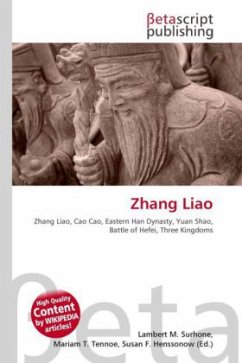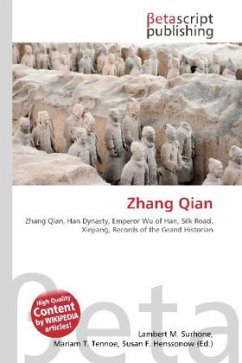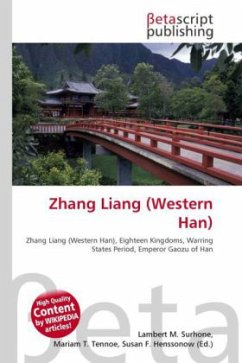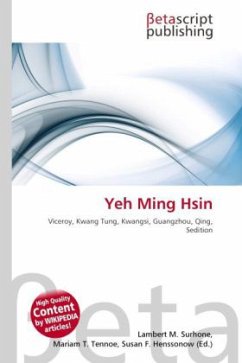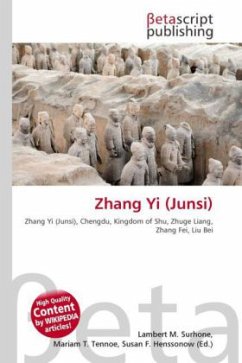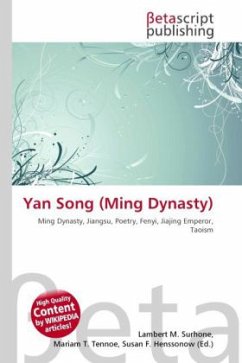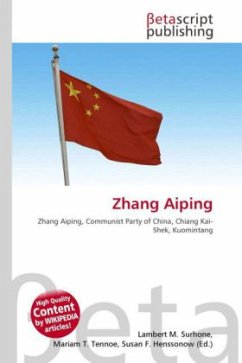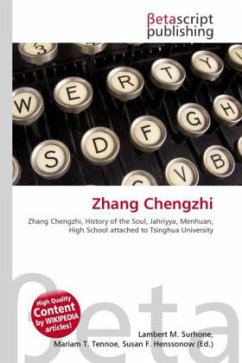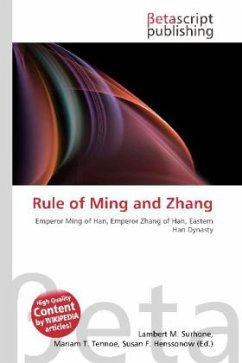
Rule of Ming and Zhang
Versandkostenfrei!
Versandfertig in 6-10 Tagen
23,99 €
inkl. MwSt.

PAYBACK Punkte
12 °P sammeln!
Please note that the content of this book primarily consists of articles available from Wikipedia or other free sources online. The Rule of Ming and Zhang refers to the reigns of Emperor Ming (r. 58-75) and Emperor Zhang (r. 75-88) of the Eastern Han Dynasty, which was considered the golden age of that dynasty. Both Emperors Ming and Zhang were generally regarded as able administrators who cared about the welfare of the people and who promoted officials with integrity. After Emperor Zhang''s death, the dynasty began to gradually decline. Emperor Ming of Han, (simplified Chinese: ; traditional ...
Please note that the content of this book primarily consists of articles available from Wikipedia or other free sources online. The Rule of Ming and Zhang refers to the reigns of Emperor Ming (r. 58-75) and Emperor Zhang (r. 75-88) of the Eastern Han Dynasty, which was considered the golden age of that dynasty. Both Emperors Ming and Zhang were generally regarded as able administrators who cared about the welfare of the people and who promoted officials with integrity. After Emperor Zhang''s death, the dynasty began to gradually decline. Emperor Ming of Han, (simplified Chinese: ; traditional Chinese: ; pinyin: hàn míng dì; Wade-Giles: Han Ming-ti), (28-75) was second emperor of the Chinese Eastern Han Dynasty. He was the second son of Emperor Guangwu. It was during Emperor Ming''s reign that Buddhism began to spread into China. One night, he is said to have dreamed of a golden man or golden men. The next day he told his ministers, and the minister Zhong Hu explained to him that he probably dreamed of Buddha in India. The emperor then sent a delegation of 18 headed by Cai Yin, Qin Jing and Wang Zun to seek Buddhism.



